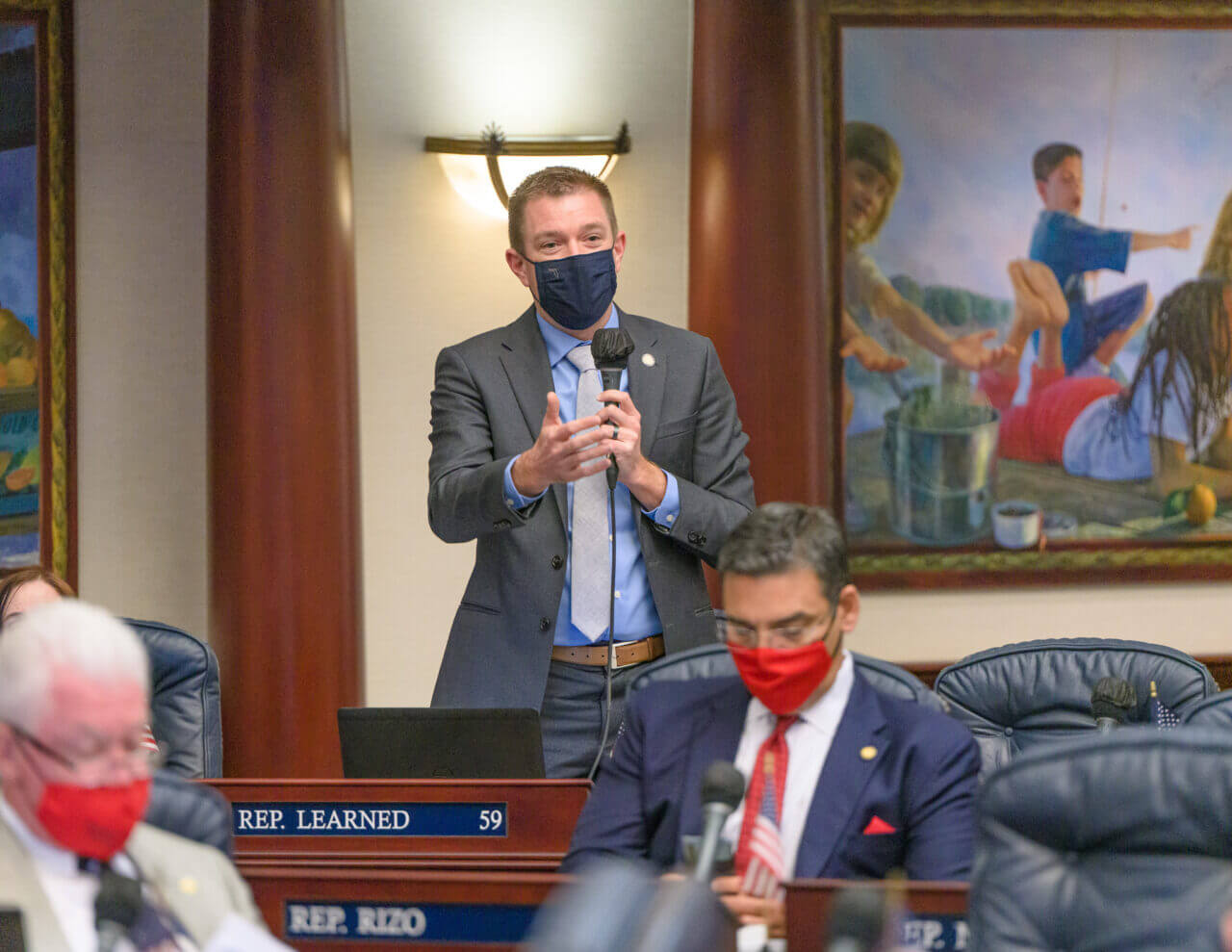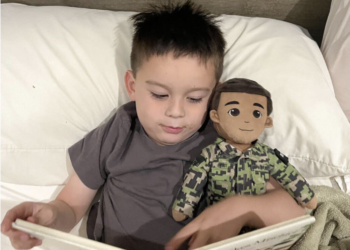Before schools in Florida wrapped up an unprecedented and difficult year of learning, one mom and education advocate was already cheering for the start of the next school year.
Jennifer Southerland, a committee member of the Florida Parent-Teacher Association, attributes her optimistic outlook to the passing of legislation that will directly support military kids in school.
“The passing of the Purple Star Campuses Bill this year is very exciting because I think that is has the potential to help all schools who choose to participate to put more thought, consideration, and action into successfully helping ease the transition of all military-connected students and families,” Southerland said.
Southerland is referring to Florida’s passing of House Bill 429- Purple Star Campuses. The bill was sponsored by Rep. Andrew Learned (D) and Rep. Patt Maney (R) and passed with bipartisan support. It established the Purple Star School program, which helps schools support educational and social-emotional challenges military-connected children face during school transitions.
Florida’s program recognizes schools that offer specific opportunities and resources that directly support military-connected students. Requirements include having a designated point of contact for incoming military families and a school website with information and resources for military families. In addition, schools provide a student-led transition program and professional development for educators on the education and emotional challenges of military kids. The bill also requires a designated school to reserve at least 5% of open enrollment seats for military-connected students.

Kim Sukach understands the need to support military families through school transition. She has the unique role of being the district liaison for military families in Hillsborough County Public School (HCPS) in Tampa, Florida. Sukach, a former educator, works for HCPS and partners with local school liaison officers to support military families in the area. HCPS is the 7th largest school district in the nation and has one of the highest military populations in the state. She supported the passage of Purple Star Campuses and looks forward to helping HCPS schools implement the designation.
“It is a great opportunity for schools that do so much for their military populations to be recognized for their effort,” Sukach said.
“As educators, we jump to the academic needs of our transitioning students and overlook the role friendship and peer interaction have on the social-emotional well-being of our military students. On the first day in a new school, the anxiety comes from worrying about not having anyone to eat lunch with; it’s not about school supplies or schedules. That is why the student-led transition program is so important for all students.”
Read: 7 lessons you can learn from a military teen who attended three high schools
The Purple Star School program isn’t necessarily new to schools around the country, but it is new to Florida schools. The Purple Star School designation is the brainchild of Pete LuPiba, Ohio’s commissioner for Military Children Interstate Children’s Compact Commission (MIC3). LuPiba, a Navy veteran, wanted to create additional ways for schools in Ohio to support military kids. In 2016, he gathered community leaders and those most invested in the military-connected students to discuss the best way a school could show its commitment to military families, and the program was born.
Since its inception, Ohio now has more than 400 Purple Star Schools and is growing each year. But more importantly, 30 other states have implemented some form of the Purple Star School program. LuPiba hopes it continues to catch fire.
“My sincere hope is Purple Star from sea to shining sea,” he said. “There are real people behind this substantial movement. I commend each veteran and educator for being purposeful, strategic, and leading by example.”
Southerland is excited for military families moving into Florida because of the passing of the bill but thinks schools may benefit the most.
“I truly hope that schools will see that this really benefits the school too, not just the families,” she said.
“The more education regarding military transition challenges, the more seamless the transition and the less disruption there will be overall. When staff know how to assist and support military families, both academically and emotionally, learning gains are more likely to occur. Military parents should be seen as a valued resource when bringing in their experiences from all over the world. Their children are global thinkers and they are usually the kids who get involved quickly because they know time is of the essence.”
To find out more about Purple Star Schools and how to help start a program in your area, visit www.militarychild.org/purplestarschools.
Read comments






































